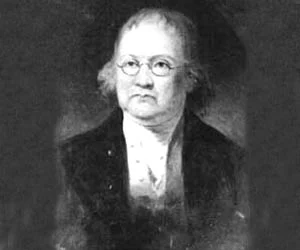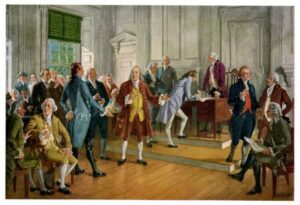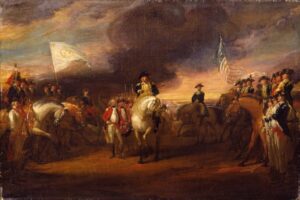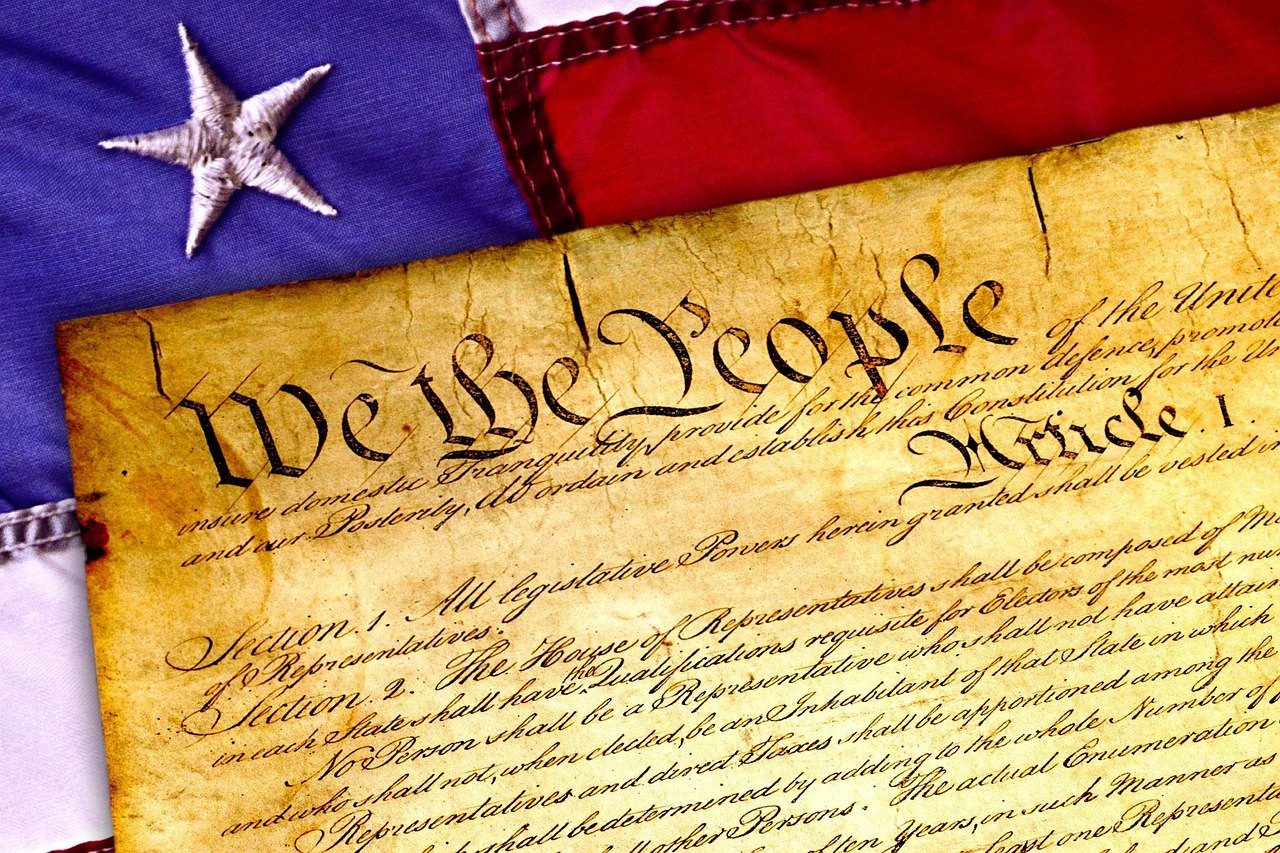
William Ellery of Rhode Island is another lesser-known founding father who gained little recognition outside of his lifelong residence of Newport. However, he was an important Patriot who signed the Declaration of Independence and the Articles of Confederation. Rather than leaving Congress for other pursuits, he served in Congress for 10 years doing the demanding work of establishing a government like none the world had ever seen. William Ellery also served in local positions in Rhode Island and as a federal customs collector for the district of Newport for thirty years.
Born in Newport, Rhode Island on 22 December 1727, William Ellery was the second son of William and Elizabeth Almy Ellery. William Senior was a wealthy merchant. He also was Speaker of the House of Deputies, a judge of the County Court, a member of the Newport Town Council, and deputy governor of Rhode Island.
The senior Ellery graduated from Harvard in 1722. He became a successful merchant and inherited a major part of his father’s estate. He recognized that a good education was essential for a young person’s future so young William was tutored by his father and was able to enter Harvard at the age of 16.
After graduation from Harvard in 1747, young William returned to Newport and entered his father’s mercantile business where he learned the details of shipping and international trade. He was also commissioned as an officer in the small Rhode Island Navy where he learned about naval affairs. In 1748, he became a Master Mason.
On 11 October 1750, William married Ann Remington of Cambridge, Massachusetts. She was the daughter of Jonathan and Lucy Bradstreet Remington and was a highly educated and accomplished young lady. William and Ann had seven children with five surviving childhood. Ann died after 14 years of marriage on 7 September 1764 and was buried in Cambridge.
After a few years in the mercantile business young William realized it was not his preferred profession. He was a customs collector for a while and then became a clerk to the Rhode Island General Assembly. He took up study of the law and began his own law practice by 1770. Law seemed to be his calling. His practice was very successful, and he prospered. About this time, he caught the political fever and politics became his passion.
Ellery was particularly active in politics because of the increasing British taxes on the colonies and British interference in the colonists self-governing. He saw no logical reason for being controlled by a monarchy 3,000 miles away, and he became an ardent and vocal proponent of separation from the mother country. He also became active in the Rhode Island Sons of Liberty.
Disputes with England became more intense in 1765 and William helped lead a riotous march of Rhode Islanders through Providence in resistance to the Stamp Act. He also supported resistance to the Intolerable Acts of 1767.
Abigail Cary and William Ellery married on 28 June 1767. Abigail was the daughter of Nathaniel and Elizabeth Wanton Cary. William and Abigail had eight children but only two survived childhood.
The First Continental Congress convened in Philadelphia, Pennsylvania in the fall of 1774 and Ellery admired their stand against British authority. He had connections to important Patriots in other colonies and was educating himself on the issues. He made no secret that he wanted to serve in the Congress.
After the battles of Lexington and Concord on 19 April 1775, Ellery became concerned that an “accommodation” with England was being suggested by some in Congress. He stated “…. There is liberty and fire enough, it only requires the application of the bellows. Blow, then, a blast that will shake this country.”
Samuel Ward, a Rhode Island delegate to Congress died of smallpox in March of 1776. William Ellery was chosen to replace Ward. Ellery traveled to Philadelphia and took his seat after presenting his credentials on 16 May 1776. He was present for the 7 June reading of Richard Henry Lee’s resolution to declare independence, and he voted for the resolution on 2 July. William Ellery voted for the final draft of the Declaration of Independence on 4 July 1776.
On 10 July, William wrote to his brother, Benjamin including this sentence: “We have lived to see a period which a few years ago no human forecast could have imagined-to see these Colonies shake off and declare themselves independent of a State which they once gloried to call parent…”
Ellery also wrote to the Reverend Ezra Siles, President of Yale on 20 July including the following; We “must forget our former love of our British brethren. The sword must determine our quarrel.”

On 2 August 1776, most delegates signed the Declaration. He wrote this about that momentous event: “I was determined to see how they all looked as they signed what might be their death warrant, I placed myself beside the Secretary Charles Thompson and eyed each closely as he affixed each name to the document. Undaunted resolution was displayed in every countenance.”
Ellery served in the Congress for ten years and he served on several committees. He was appointed to the Marine Committee and the Admiralty Court because he had connections with shipping magnets and had knowledge of naval matters. He participated in the debate on and voted for the Articles of Confederation in 1777. The Articles served as the first “constitution” and established the title of the United States of America. (The Articles were not adequate, and the country almost went under before the Constitution of the United States of America was adopted on 17 September 1787.)
The British recognized that Newport, Rhode Island had one of the best deep-water ports in the colonies and they occupied the city from 1776 to 1779. The occupying troops essentially destroyed the city. The British knew Ellery had signed the Declaration, so they burned his home to the ground and destroyed all other property of his.
A Congressional Committee was selected to investigate what I will call: The “Silas Deane Affair,” which involved a secret mission to France and bad relations between the American team members. I don’t know what the committee reported but Silas Deane died under mysterious circumstances in 1779.
Ellery was a member of another committee that tried to sort out the often-competing jurisdictions of the Admiralty Courts and Federal courts. This problem was not solved until the 1840’s.

The surrender of the British army commanded by General Charles Cornwallis at Yorktown on 19 October 1781 ended most of the fighting of the Revolutionary War. The treaty of Paris, which officially ended the War, was signed on 3 September 1783, and took effect on 12 May 1784. The last British troops left American soil on 25 November 1783.
While still serving in Congress, William became a justice of the Rhode Island Supreme Court from May 1780 to May 1781 and was Chief Justice from June 1785 to May 1786.
In 1782 Ellery was appointed by Congress to officially thank Major General Nathanael Greene for his valuable service in the Southern Campaign of the War.
Ellery joined with Rufus King of New York in 1785 in a concerted but unsuccessful effort to have slavery abolished in the United States.
In 1786 William Ellery left Congress after ten years to accept an appointment as commissioner of the Continental Loan Office for Rhode Island. He served until 1790. The need to recover his own finances may have caused him to accept this position. The British had wiped out his possessions in Newport and during his long service in Congress he was unable to conduct his law practice.
In 1790, President of the “new” United States of America George Washington appointed Ellery customs collector for the District of Newport. He held this position for thirty years until his death. He served through changes in political administrations and five presidents, probably because of his competence and his earlier service to the Revolution.
Abigail died on 27 July 1793 in Newport. She was buried in the Common Burial Ground in Newport.
Ellery prospered in his later years. He also kept active in public affairs, in scholarly pursuits, and correspondence. He had earned the respect and friendship of many of his contemporaries and others often sought his advice. His influence, both in and out of Congress, was considerable.
William Ellery was a true intellectual. He was widely read, not only in English, but in Greek and Latin. He loved the classics and urged his children and grandchildren to devote as much time and patience as necessary to acquire a sound understanding of the great classical works.

Love of the classics continued through Ellery’s last days. He was actively translating Virgil’s Aeneid and Horace’s Espistles. He died sitting in a chair reading Cicero’s De Officiis on 15 February 1820. He was initially buried in Coggeshall Cemetery in Newport, but later, he was given a tomb in the Common Burial Ground in Newport.
William Ellery died at 92 years old, one of only three signers of the Declaration to live into their 90s. The other two were John Adams and Charles Carroll of Carrollton.
William Ellery’s name appears on the Signers Memorial in Washington, DC, but there are no great monuments honoring him. A town in New York is named after him and a street in Middletown, Rhode Island bears his name.
The Rhode Island Sons of the Revolution and the William Ellery Chapter of the Daughters of the American Revolution conduct a commemoration at Ellery’s grave every Independence Day. This is a meaningful tribute for an American patriot and a great man.
Not long before his death, Ellery had summed up his career as follows: “I have been a clerk of the court, a quack lawyer, a member of Congress, one of the lords of the Admiralty, a judge, a loan officer, and finally a Collector of the customs and thus, not without great difficulty, but as honestly, thank God, as most men, I have got through the journey of a varied and sometimes anxious life.”
